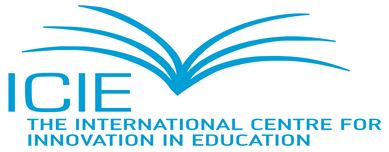Workshops
In addition, a number of workshops will be added.
W3
Lost Prizes: Recognizing and Nurturing the Talent of At-Risk Students
Ken and Andrea McCluskey
University of Winnipeg, Canada
If we expect students to communicate and behave in positive ways in our schools and elsewhere, there must obviously be rules, order, and organization. And clearly, educational environments should be consistent and stable for all children and youth. However, when overly rigid, punitive regulations are put in place, many kids – especially those who do not respond positively to inflexible reactions and approaches – may be harmed instead of helped. Indeed, under certain conditions, teachers may inadvertently say and do things that essentially drive nonconforming, relationship-resistant young people from our system. Even with the best will in the world, educators can sometimes make unfortunate choices, draw lines in the sand, and push marginalized students over and out. This session will identify some pitfalls to avoid and review Lost Prizes projects that have used Creative Problem Solving and Mentoring to identify and develop the talents of troubled youth at risk for alienation, academic failure, and gang involvement.
W5
Learning How to Use New Creative and Critical Thinking Strategies
Don Ambrose
Rider University in Lawrenceville, New Jersey, USA
We can invent new creative and critical thinking strategies by using the process of creative association during interdisciplinary explorations. A recent project includes descriptions of many creative and critical thinking strategies that can be used to promote student learning. This session involves participants in explorations of these strategies. Some of the strategies are selected for in-depth use during the workshop. Participants will learn the step-by-step implementation procedures. They also will experience simulations of some of the strategies most conducive to creative and critical thinking. After the workshop, participants will have a collection of new intellectual tools for use in their own instruction and problem solving.
W6
Reducing Writing Anxiety through Creative-Critical Thinking
Christine Boyko-Head
Mohawk College, Canada
Creative Problem Solving has helped organizations and businesses find innovative solutions to their biggest challenges. What if? this model could be adapted to help learners overcome writing blocks, essay anxiety, thesis anguish and proposal paralysis? This workshop shares research findings on the application of arts-based strategies and cognitive preferences in problem solving to enhance 21st Century skills in learners. Using creativity tools from the Mind the Gap Literacy project (Boyko-Head , 2018-19), this fun, fast-paced workshop highlights the connection between your cognitive preferences, problem solving methods, and writing to guarantee a ‘first out-of-the-block’ creative-critical thinking process good for all communication tasks.
W7
Thinking Preferences and Arts-Based Strategies to Enhance 21st Century Skills
Christine Boyko-Head
Mohawk College, Canada
The Osborn-Parnes Creative Problem Solving model has helped organizations and businesses innovate for over 60 years. What if? this model could be adapted to help learners overcome writing blocks, essay anxiety, thesis anguish and proposal paralysis? This workshop shares research findings on the application of thinking preferences and arts-based strategies to enhance 21st Century skills in learners. This fun, fast-paced workshop uses creativity tools from the Mind the Gap project to guarantee a ‘first out-of-the-block’ creative-critical thinking process good for all communication tasks.
